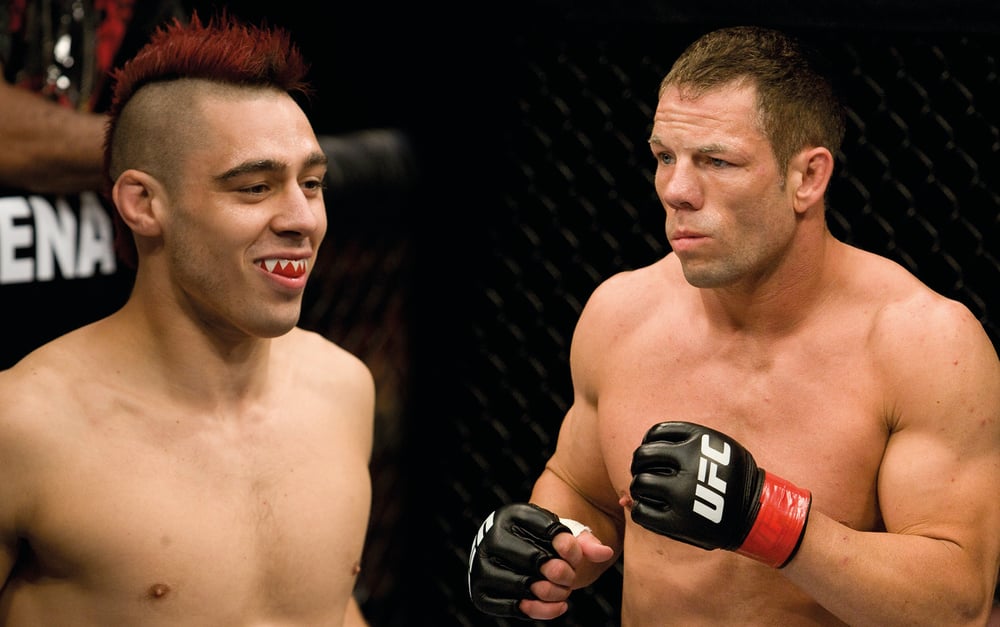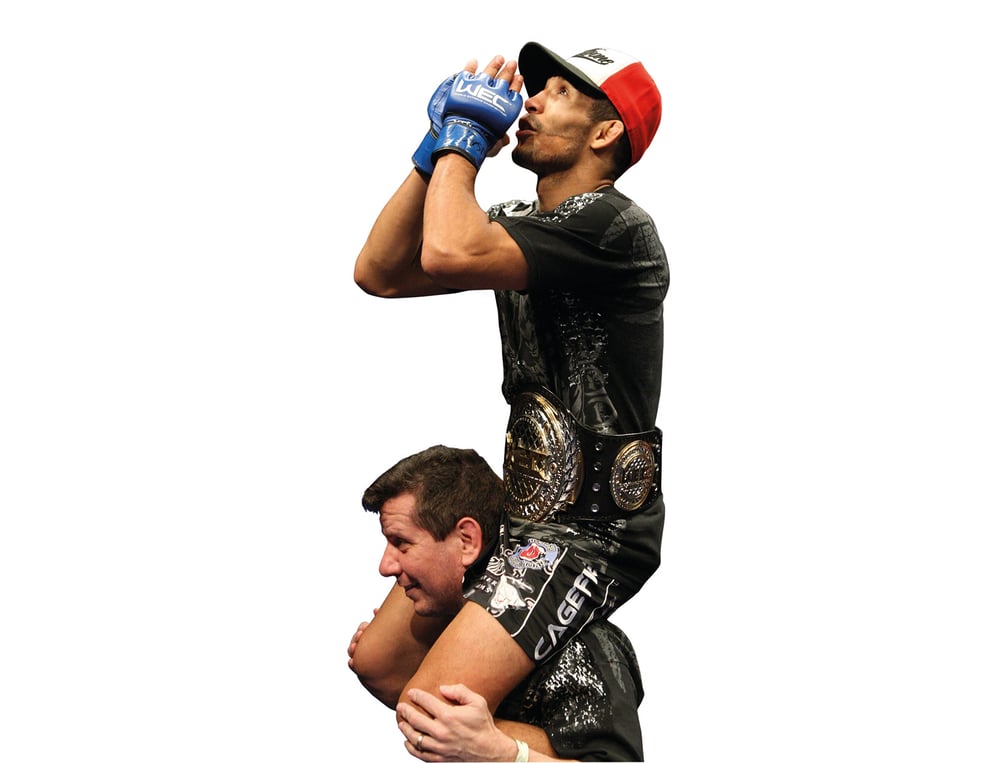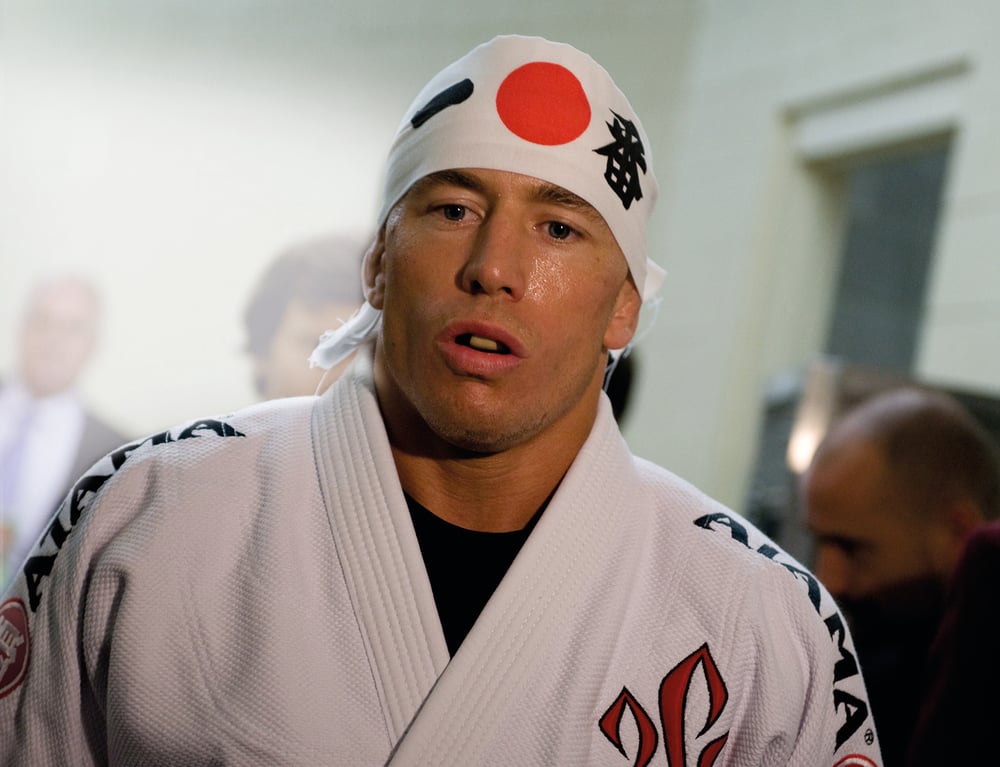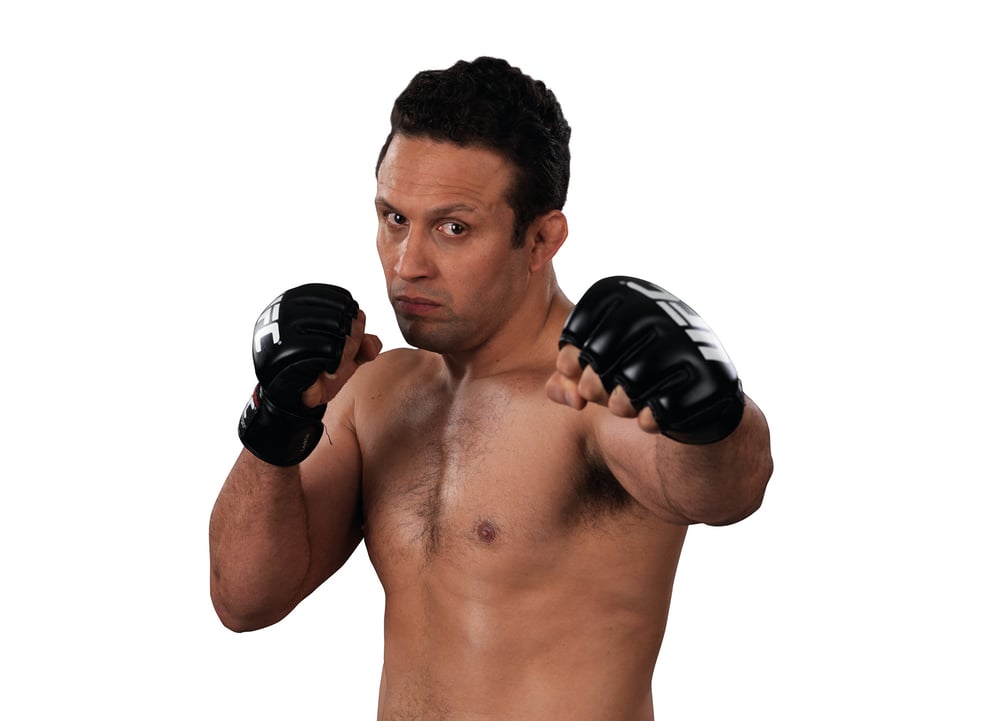
Issue 063
June 2010
Basketball fans don’t have to argue that their sport has a right to exist in a civilized society. Soccer players don’t intend to deliberately hurt their opponents when they go out onto the field. A tennis pro risks defeat, but is unlikely to leave the court with a broken jaw. In this sense, fight sports are a special case – and fighting requires a moral code.
From the writings of Cicero in Roman times through Thomas Aquinas and on to the US Army’s ‘Why We Fight’ World War II propaganda films, armed forces have been called on to justify their actions. Similarly, each individual who chooses to participate in the martial arts is called upon to explain why they feel the need to explore their violent side.
The traditional Oriental arts have developed rituals and notions of respect that are valued as highly as perfect technique. Numerous boxers have declared that the discipline instilled by life in the gym has saved them from a life of crime. In the professional arena, the tremendous sacrifices required mean that money alone is not sufficient motivation.
Gym walls are routinely plastered with quotes designed to inspire. Trainers regularly invoke the language of the warrior culture to squeeze the last drop of effort from their charges. Although MMA has not yet developed its own distinct philosophy, some voices from the past still have relevance.
Sun Tzu
In the 6th century bc, Chinese general Sun Tzu wrote The Art of War. The book is light on ethics and heavy on strategy. A 13-chapter guide to defeating your enemy tactically and psychologically, Sun Tzu’s masterpiece became required reading for military men, captains of industry and Tony Soprano.
You don’t play at fighting. You can get hurt so there is no room for sentiment. Battles are won by picking the right time to take on an opponent. When arranging terms and in the fight itself, timing is everything: ‘Walk in the path defined by rule and accommodate yourself to the enemy until you can fight a decisive battle. At first, then, exhibit the coyness of a maiden, until the enemy gives you an opening; afterwards emulate the rapidity of a running hare, and it will be too late for the enemy to oppose you.’
Success comes from laying solid plans. Always be prepared to do what your opponent least expects. Misinformation and faking are vital. Any ruse that can give you an advantage should be employed. If your opponent has a temper, wind them up to throw them off their game. If they are prone to arrogance, lull them into a false sense of security. Winning is everything.
WORDS OF WISDOM
‘All warfare is based on deception.’

MMA: Philosophy in action - Dan Hardy
‘Supreme excellence consists in breaking the enemy’s resistance without fighting.’ Sun Tzu
Last year Dan Hardy engineered a meeting with Marcus Davis by calling him out. In the build up to the clash, ‘The Outlaw’ continued the taunts and got under Davis’ skin by instigating an online photoshop campaign. The normally mild-mannered American screamed his hatred for Hardy in interviews. ‘The Irish Hand Grenade’ had gone off too early. By the time the pair met at UFC 99, he was there for the taking. Whatever observers may say about sportsmanship, the career paths of the two fighters since Hardy started messing with his opponent’s head speak volumes. The Englishman leapfrogged in the top ten on his way to a title shot. Davis dropped a split decision and, more importantly, a big chunk of credibility. His poor reaction to the loss caused his stock to fall even lower.
Yamamoto Tsunetomo
Japanese warrior Tsunetomo had been forbidden from committing ritual disembowelment when his master died, so he withdrew to a hermitage. Over a six-year period, starting in 1710, Tsunetomo outlined his views to a young samurai. His conversations about the Bushido way of life were put together as the book Hagakure. A new generation were introduced to the thoughts of Tsunetomo when quotations from Hagakure were read by Forrest Whittaker in the 1999 movie Ghost Dog: The Way of the Samurai.
Yamamoto Tsunetomo feared for the younger generation in Japan. Hagakure calls for a return to traditional values. Loyalty is non negotiable. Any level of ego or self-regard should be forgotten. You should contemplate death regularly, to the extent that you no longer fear it. Defeat therefore becomes irrelevant compared to the desire to fight with honor. Planning and strategy are frowned upon. Those who spend time working on anything of an artistic nature are dismissed as worthless. A warrior lives by intuition. The intuition of a man who lives a simple life is morally superior to the intellectual who is corrupted by outside influences. A true warrior can trust his gut feeling.
WORDS OF WISDOM
‘When one has made a decision to kill a person, even if it will be very difficult to succeed by advancing straight ahead, it will not do to think about doing it in a long, roundabout way. One’s heart may slacken, he may miss his chance, and by and large there will be no success. The way of the samurai is one of immediacy, and it is best to dash in headlong.’

MMA: Philosophy in action - Wanderlei Silva
‘If you are slain in battle, you should resolve to have your corpse facing the enemy.’ Yamamoto Tsunetomo
The way of the samurai calls for a retainer to have unflinching obedience. He lives to do his master’s bidding and for the chance to go to war on his master’s behalf. On the battlefield, his only concern is fighting with honor. Wanderlei Silva is the closest thing we have to a samurai in MMA. He has repeatedly stated that he will fight on as long as his fans want him to – they are his master. Each time he enters the cage, you know what you’re going to get. ‘The Axe Murderer’ will march forward, throwing clubbing punches and kicks, hoping to get his man out of there in spectacular fashion. During his record-breaking Pride winning-streak, he scored time after time. In recent times, the ‘L’s’ have become more frequent, but the direct style and respectful demeanor remain the same. He seems to only care about delivering the kind of performance his masters in the arena have come to expect.
Friedrich Nietzsche
Nietzsche died in 1900, but the German’s work is still considered controversial. His views on the nature of society and the primacy of the individual were scandalous in his time and have been subject to a variety of interpretations. Nietzsche’s writing has an obvious appeal for athletes, particularly fighters. Mike Tyson, the self-styled ‘Baddest Man on the Planet’, is a fan.
Nietzsche didn’t literally mean that God had died – he believed that the religion of the times had created a slave mentality, and the view that mortal life was merely a punishment stage on the way to eternal life in paradise meant that humans were not striving to fulfill their true potential. To Nietzsche, meekness and restraint were the enemies of evolution. We need to embrace the master mentality. Man is not driven by the will to survive or the will to love; man’s driving force is the will to power, the will to conquer. Arrogance is a part of greatness – unfettered by stifling social relations, true masters will emerge: the Übermensch [supermen].
These supermen are the ones who prove themselves to be masters of their own destiny. They demonstrate strength in the face of adversity, self-discipline and power to rise above the mob and become examples to follow. Fitting role models who will herald the dawn of a new morality drawn from self-awareness and experience of struggle. The message has an obvious appeal to fighters, a group who make huge sacrifices in order to establish a reputation. As they strive to climb the ranks, they would do well to heed the warning of Nietzsche (later repeated by Mike Tyson): ‘He who fights with monsters should look to it that he himself does not become a monster. And when you gaze long into an abyss, the abyss also gazes into you.’
WORDS OF WISDOM
‘God is dead.’

MMA: Philosophy in action - Jose Aldo
‘What does not kill me, makes me stronger.’ Friedrich Nietzsche
Life is a struggle for dominance. To come out on top, a man must be prepared to push himself to the very limit of his capabilities. Every obstacle we meet, whether it is illness, injury or personal tragedy, will improve us personally and make us better equipped to face challenges in the future. Fighting requires a level of toughness unknown in other sports. In boxing, the greats have traditionally risen from humble beginnings. Many championship runs have started with a man’s desire to smash his way out of the ghetto and prove his worth. An empty belly and a sense of injustice are powerful motivational tools. Jose Aldo grew up in the city of Manaus in Northern Brazil. From the age of six, he would go to work with his father, moving rocks by hand on a construction site. The level of poverty he lived through is beyond the understanding of people brought up in the Western world. Determined to make it big, he left for Rio as a 16-year-old. Many days, he could not afford to eat and slept in the gym. Aldo has gone on to become a star in the WEC featherweight division. Ability and the willingness to learn will get you so far. The experience of living through hard times and going on to succeed can elevate a fighter to another level.
Bruce Lee
Bruce Lee left Hong Kong to study philosophy at the University of Washington. He had a base in wing chun kung fu, but cross-trained in other arts and developed his own fighting style: jeet kune do. Lee was at the forefront of the ‘70s martial arts movies boom, starring in hit films such as Enter the Dragon, in which he wins a contest with an armbar. UFC President Dana White has described Bruce as “The father of mixed martial arts.” The Tao of Jeet Kune Do, a collection of Bruce Lee’s musings on martial arts and life, was published shortly after his death.
Lee saw that the key to success in the martial arts, and life, was self-awareness. All knowledge is self-knowledge. Learning to fight cannot be about mastering one style. You must measure your development in terms of your personal growth, not the dictates of an external body. The artificial techniques and elaborate rituals of the traditional arts restrict progress rather than aiding it. Real combat requires you to act on instinct. To express yourself fully, you must embark on a lifelong journey. You must continually experiment to unearth your natural style.
WORDS OF WISDOM
‘Empty your mind, be formless. Shapeless, like water. If you put water into a cup, it becomes the cup. You put water into a bottle and it becomes the bottle. You put it in a teapot, it becomes the teapot. Now, water can flow or it can crash. Be water, my friend.’

MMA: Philosophy in action - Georges St Pierre
‘In building a statue, a sculptor doesn’t keep adding clay to his subject. Actually, he keeps chiseling away at the inessentials until the truth of its creation is revealed without obstructions. Thus, contrary to other styles, being wise in jeet kune do doesn’t mean adding more; it means to minimize, in other words to hack away the unessential. It is not daily increase but daily decrease; hack away the unessential.’ Bruce Lee
Anyone hoping to get anywhere in the world of MMA these days needs to be a true all-rounder. On top of that, you have to recognize your strengths and play to them. Georges St Pierre is a perfect example of how to go about this. Over his cage career, the Canadian has evolved into a supreme fighter. His entrance garb betrays his karate roots. Over the years, he added new weapons to his arsenal, seeking out the very best coaches and training partners. Just as importantly, he has stripped away the things that don’t work. These were not necessarily flaws, merely techniques that no longer suited him as he grew into himself. The timing of his takedowns and his dominant wrestling appear second nature. No one looks more comfortable in the Octagon than GSP.
The Gracie family
Helio and Carlos Gracie and the dynasty they created transformed the way we think about the martial arts. Their conviction that they had formulated the supreme fighting system led to the Gracie challenge, open to all comers, and eventually the formation of the Ultimate Fighting Championship. Gracie jiu-jitsu is more than a martial art; it is a holistic lifestyle choice.
The principles of efficiency, patience and control are vital. Without them, you will fail in both jiu-jitsu and life. Efficiency comes from a healthy diet, honesty and a conscientious attitude. Patience will enable you to defeat an aggressive opponent. If you calmly assess the situation then strike at the correct moment, your mastery of technique will be decisive. In life, impulsive behavior often results in wasted energy and disappointment. To win a fight, you have to exert control over your opponent. To thrive as a person you have to exert self-control – eat clean, abstain from drugs and alcohol and exercise regularly.
WORDS OF WISDOM
‘If he is confident in himself morally, he dominates the adversary with his moral strength, not with his physical power. Physical power is a complement for when a person is not morally evolved.’ Helio Gracie

MMA: Philosophy in action - Renzo Gracie
‘Let me tell you what the real jiu-jitsu is: the real jiu-jitsu is the one that doesn’t back away from a challenge. It goes at the obstacle and defends its flag. It’s like, if you want to claim that you have the best fighting style, you should be in the UFC kicking some ass. That’s where the best competition is.’ Renzo Gracie
The Gracies, like many families, have had fallings out, and different factions claim to be the true standard bearers of Gracie jiu-jitsu. Of the surviving clan, Renzo Gracie certainly conducts himself in a manner that lives up to his famous surname. His character is appealing: Mixing the wise cracks of his adopted New York with his easy-going Brazilian charm. A passionate teacher, he has continued the mission to make the world aware of BJJ. Renzo spreads the word via his network of affiliated academies. Through his work with the Abu Dhabi royal family he has been an influential figure in the Emirate’s embrace of jiu-jitsu (the art is a compulsory subject in Abu Dhabi high schools). In the spirit of the Gracie challenge, Renzo has set out to prove the superiority of his art by entering the MMA arena. From defending the family honor in Pride to his long-awaited UFC bow, Renzo has remained the Gracie most willing to earn respect the hard way.










